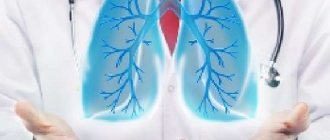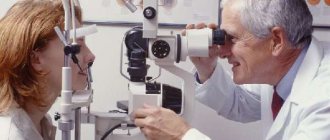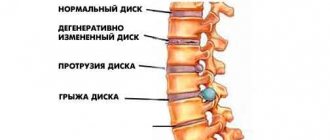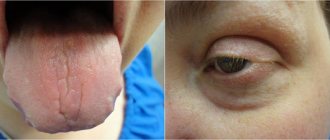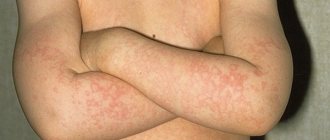What is a profession
What diseases does an infectious disease specialist treat? Doctors in this specialty deal with diseases that arise as a result of the activity of harmful bacteria that enter the human body. And also specialists in this profession are engaged in studying the nature of infections, their diagnosis, prevention of occurrence and fight against infections.
Infectious disease specialists work directly in the fields of microbiology and epidemiology. Many diseases arise precisely because harmful microorganisms enter the body. For example, rheumatism appears due to the presence of streptococci, and stomach ulcers due to Helicobacter pylori, etc.
What does an infectious disease doctor treat? He deals directly with diseases that can be transmitted from one person to another. Such ailments include simple off-season diseases, such as acute respiratory viral infections, influenza, etc., as well as those that are especially dangerous - plague, cholera, AIDS and a number of others.
Who is an infectious disease specialist?
An infectious disease specialist deals with illnesses of infectious origin and is responsible for their prevention, timely diagnosis and therapeutic therapy. In most cases, such a specialist is located in a special hospital, or in extreme cases in a separate office. The doctor’s activities are aimed at studying the occurrence and mechanism of development of infectious lesions, determining their clinical picture and looking for ways to prevent and eliminate them.
If we are talking about identifying infectious lesions in children, then a separate pediatric infectious disease specialist is provided. Its activities cover influenza diseases, acute respiratory infections, as well as diseases such as chickenpox or rubella. Also, a doctor of this profile understands more serious infectious lesions such as meningitis, hepatitis or diphtheria. Its scope is microorganisms and bacteria, which are considered prerequisites for the development of the most dangerous ailments of various organs. The doctor can also help with any questions regarding childhood vaccinations and provide detailed advice on any questions regarding the possible risks and benefits of the procedures.
How infectious diseases are transmitted
There are several types of such ailments. They are divided into groups according to the principle of transmission of infection:
1. Intestinal diseases - infection enters the body when eating dirty vegetables and fruits. Eating with unwashed hands can also contribute to intestinal diseases.
2. Respiratory tract diseases - the infection is transmitted by airborne droplets.
3. Blood diseases. They are divided into two types. Transmissible - enter the body through the bites of various insects (ticks, fleas, mosquitoes, etc.), non-transmissible - transmitted by blood transfusion or injection through dirty needles.
4. Diseases of the external integument - infection occurs through close contact with a patient, through mucous membranes or skin.
If the infection is transmitted only from person to person, then the diseases are called anthroponotic, if from animals to people - zoonotic. Here it is worth paying attention to one curious fact: medicine knows of cases when people got AIDS, becoming infected through a transmissible method, that is, the carrier of the virus was bitten by a mosquito, then it latched onto a healthy person and transmitted the virus to him. The probability of infection in this way is 1/10,000 and this occurs mainly in places where AIDS is very common. For example, in some African countries, every third person suffers from this disease.
How is the reception going?
What does a doctor do during a routine appointment at a clinic? First of all, he listens to the patient and asks about the onset of the disease, the nature of its course, and clarifies details that play an important role in making a diagnosis (for example, whether the patient recently vacationed in another country, whether he could have come into contact with a sick person, whether he was recently bitten by an animal). The doctor checks to see if there are enlarged lymph nodes.
The infectious disease specialist must refer the patient for testing to identify the pathogen. When the picture of the disease is clear, treatment with antibacterial, antiviral or antifungal drugs is immediately prescribed. If some details need to be clarified, detoxification therapy is prescribed.
Whenever possible, prepare for a doctor's visit: 12 hours before the appointment, exclude the consumption of food, alcohol and tobacco. If possible, do not take medications, and if you cannot skip a dose, you should definitely inform your doctor about this.
Pathogens of infections
An infectious disease specialist treats all ailments that occur due to the penetration of viruses, fungi, prions, bacteria, etc. into the body. Moreover, each group causes certain diseases:
- viruses – influenza, measles, HIV, meningitis, hepatitis, etc.;
- fungi - athlete's foot, mucormycosis, candidiasis, aspergillosis, cryptococcosis and others;
- Prions are infectious microscopic particles that infect the brain. They differ from other pathogens in that they consist of only one protein. Cause diseases leading to dementia (familial insomnia, kuru, Creutzfeldt-Jakob syndrome, Schenker syndrome);
- bacteria – cholera, plague, salmonellosis, dysentery, etc.
Pediatric infectious diseases
There are a lot of childhood infections, and some of them have not even been studied yet, as they are extremely rare. But there is a list of the main diseases that children most often suffer from. What does an infectious disease specialist treat in children?
Measles is considered one of the most contagious diseases, and all children from three years of age are susceptible to it. At an earlier age it is extremely rare. Measles is transmitted by airborne droplets and is often contracted in kindergartens. The incubation period of this disease is from 10 to 17 days. In very rare cases, it can last up to 21 days if during this time the child is taking cold medicine, which can temporarily suppress the development of measles.
Children's susceptibility to rubella is slightly lower. It is also transmitted from a sick person to a healthy one. A carrier of rubella is dangerous only in the first days of the disease, after which the infection becomes non-contagious. The incubation period is from 15 to 24 days.
What does an infectious disease specialist treat? Mumps, otherwise known as “mumps,” is also on the list of diseases treated by this doctor. This infection is less contagious than measles and rubella. It is transmitted by airborne droplets and is easily transmitted if a healthy person is in the same room as a sick person. The incubation period is from 11 to 21 days, sometimes up to 26 days.
Scarlet fever is caused by streptococci. It is transmitted by airborne droplets, but you can also become infected through toys and personal items (for example, a towel). The incubation period is from 2 to 7 days, sometimes lasts up to 12 days.
Diphtheria is caused by a toxigenic bacillus that produces a strong poison (exotoxin). It is transmitted from a carrier to a healthy person. The incubation period is from 2 to 10 days.
What else does an infectious disease specialist treat? Poliomyelitis is a fairly rare disease; infection has been minimized thanks to regular preventive vaccinations. A child can get sick from contact with a carrier of the virus. Poliomyelitis is also transmitted through unwashed fruits, vegetables and by airborne droplets. The incubation period is from 5 to 35 days, but more often no more than 12 days.
Chickenpox is a mild form of smallpox, which was finally defeated by Soviet doctors in the 20th century. Otherwise, this infection is called chickenpox. It is transmitted through the air and is not very dangerous; it goes away in about a week. Children are highly susceptible to chickenpox. The incubation period is from 11 to 21 days, but mostly 14 days.
What does an infectious disease specialist treat in adults?
Now let’s move on to a detailed list of diseases that an infectious disease doctor can treat:
- rabies, which without treatment is absolutely fatal;
- botulism caused by the bacterium botulinum, which is found in expired canned food;
- chicken pox, which in adults is very, very difficult;
- viral hepatitis types A, B, C and others;
- hemorrhagic fever, including the type that negatively affects the kidneys;
- influenza and parainfluenza, which is caused by an influenza virus that has a certain number of serotypes;
- diphtheria, manifested by the formation of plaque on the tonsils;
- measles and rubella, including a mixture of these two diseases;
- meningococcal infection, which can be fatal;
- erysipelas, affecting the skin and its deeper layers;
- cholera caused by the bacterium Vibrio Cholerae;
- dysentery, which occurs in 80 million people a year, and in 70 thousand cases it ends in death;
- helminthiasis - diseases caused by parasites;
- typhoid fever is a disease transmitted by the oral-fecal route;
- any types of encephalitis;
- syphilis, chlamydia and gonorrhea, that is, sexually transmitted diseases;
- plague, tuberculosis, anthrax and tetanus.
Infections during pregnancy
What does an infectious disease doctor treat? He also deals with diseases that affect pregnant women. Each infection poses a great danger to the fetus. The occurrence of some of them depends directly on the woman’s immunity, and living conditions and the presence of stress are also of great importance.
What does an infectious disease specialist treat during pregnancy? The most dangerous diseases are rubella, chickenpox, cytomegalovirus infection, toxoplasmosis, chlamydia, herpes, mycoplasmosis, ureaplasmosis, syphilis, hepatitis B and C, and HIV infection.
Treatment of infectious diseases
Treatment takes place in specially equipped hospitals. In mild cases, home treatment is possible. A prerequisite is strict adherence to the anti-epidemic regime.
What does an infectious disease specialist treat? He deals with diseases that are transmitted from one person to another. The times when many infectious diseases were practically incurable are long gone. Now doctors have developed many types of preventive vaccines, and there are also a large number of effective medicines. The list of the latter includes antibiotics, immunoglobulins and other drugs.
Doctor's appointment
What does the patient do before the appointment?
You can usually get to an infectious disease specialist without any preliminary preparations. Preparation may be required if the patient is to undergo tests. In this case, you should adhere to certain rules:
- do not eat for 12 hours before donation;
- give up alcohol and nicotine for 24 hours;
- do not take medications, but if there are medications for constant use, you need to coordinate this point with a specialist.
Herpetic infection
The herpes virus can not only affect the mucous membranes and skin, but also negatively affect the central nervous system, internal organs and eyes. It is mainly transmitted by airborne droplets. If herpes is genital, then they become infected through sexual contact.
The herpes family includes the following diseases: chickenpox, cytomegaloviruses and herpes zoster. Once it enters the body, herpes remains there for life. Often in a “sleeping” form. But under the influence of a number of reasons it can manifest itself. Most often, herpes affects the mucous membranes and skin, but can also affect the brain, adrenal glands, liver, lungs and spleen.
An infectious disease specialist treats herpes of all types. This disease is very dangerous for pregnant women, as it can harm the fetus. Herpes also contributes to the development of cervical cancer.
Infectious disease symptoms, or when to see a doctor?
A general practitioner can give practical advice to a person who is concerned about his own health condition. However, there are a number of characteristic symptoms that indicate that we are talking about an infectious disease in the initial stages, although there are also those that occur rapidly and are almost asymptomatic, becoming chronic.
The main symptoms, determined by the doctor as a signal for further action, are a persistent increase in temperature, the appearance of skin rashes and severe migraines. It is taken by an infectious disease specialist for:
- discharge from the vagina, cervix and urethra (especially during pregnancy);
- itching in the genital area, frequent burning sensation;
- painful sensations in the perineal area, frequent desire to relieve minor need, and when trying to do this, a feeling of pain;
- spotting, bleeding from the reproductive organs;
- the appearance of redness, abrasions, ulcers in intimate places, in the groin;
- changes in the urine - the appearance in it of “foreign bodies” such as threads, flakes, lumps, blood clots.
What other “alarm bells” may be identified by a doctor? These are not only signs of sexually transmitted diseases, but also problems with night rest - lack of sleep at night and a feeling of drowsiness during the day, purulent formations on the mucous membrane, muscle aches and joint pain, constipation and diarrhea, nausea and vomiting, enlarged lymph nodes. Children are treated by an infectious disease specialist if problems such as:
- rashes on mucous membranes;
- intoxication of the body;
- diarrhea with blood in the stool;
- frequent nausea, which is often accompanied by vomiting;
- yellowness of the skin
- a temperature that stays at 38 degrees and does not go astray.
Treatment of herpes
What does an infectious disease specialist treat? In the normal course of the disease, herpes is treated with ointments that are applied to the rash. The latter becomes covered with a dry crust, which subsequently disappears. For widespread skin lesions, local treatment is carried out.
If the oral mucosa is affected, it must be rinsed with a weak potassium solution and taken with liquid food. Erosion is lubricated with a solution of novocaine.
What else does an infectious disease specialist treat? He also deals with ocular herpes. Here, kerecide is used, which is instilled into the eyes. The drug “Human Leukocyte Interferon” and other local effects (laser, cryotherapy, etc.) are also used.
Are worms considered infectious diseases?
Undoubtedly, since their larvae infect the body. There are over 20 different types of worms; they not only live in the human body, but also cause various additional diseases.
The larvae enter the body along with food, water or dust. They ripen directly inside. Sometimes worms can even lead to death if they enter the brain. Often the cause of infection is the meat of sick animals or poorly processed fish. Paradox: worms are not transmitted from humans to animals, but people can become infected from them.
What treatment is prescribed
There are several drugs that are harmless to humans but lethal to parasites. They destroy eggs, larvae and the worms themselves. Medicines can act on several types of parasites at once.
It is not recommended to destroy parasites in the body on your own; it is better to consult a doctor. An infectious disease specialist treats worms of all types. Initially, the doctor must determine the type of worms. This is done by taking stool for analysis, and only after that appropriate treatment is prescribed.
What happens at the reception?
You can make an appointment with an infectious disease specialist at any of the specialized paid or free clinics. After the patient contacts the doctor, he performs several mandatory actions. First, he asks the person about his well-being, symptoms and events that preceded the onset of the disease. Next, the doctor conducts an examination.
If there are rashes, purulent lesions on the patient’s body, the doctor assesses the degree of damage, features and appearance of such pathologies. This suggests the development of a particular disease.
After examination, a diagnosis is required. In some cases it is carried out very quickly. With infectious diseases, the patient's condition can quickly deteriorate. Sometimes there is practically no time left for diagnosis. In this case, the doctor prescribes treatment based on his own experience, as well as the clinical picture of the disease. In some cases, immediate hospitalization of the patient is required.
If it is still possible to carry out a diagnosis, the infectious disease specialist must wait for the results of the examination. Only after this can he prescribe comprehensive treatment.
Prevention of infectious diseases
Prevention is as important as treatment. Ideally, it is better to prevent infection than to treat it later. Great attention should be paid to cleanliness and personal hygiene. Wash your hands after dirty work, before eating and after using the toilet. This will protect you from many intestinal infections. Sometimes they come from handrails in public transport, money, store counters, etc. Therefore, when you come home, you need to wash your hands in any case.
Rodents, cockroaches, and many insects (especially ticks and mosquitoes) can be carriers of infections. In order to protect yourself, you need to treat the places where they accumulate with special chemicals and prevent them from spreading. There are many means that can be used - aerosols, fumigators, toxic mixtures, etc.
Consultation with an infectious disease specialist and tests
- smear, as well as culture of flora;
- blood chemistry;
- tests to detect viral hepatitis;
- PCR diagnostics;
- Blood ELISA;
- examination of feces for helminths;
- serological testing for intestinal and respiratory infections.
You may need to do:
- X-ray;
- Ultrasound;
- electrocardiography;
- irrigoscopy;
- fibrocolonoscopy;
- vaccination.
- Blood test for biochemistry;
- Blood test to detect hepatitis;
- Performing an enzyme-linked immunosorbent test;
- Performing PCR diagnostics;
- Taking a smear for flora;
- Detection of respiratory or intestinal infections using serological testing.

